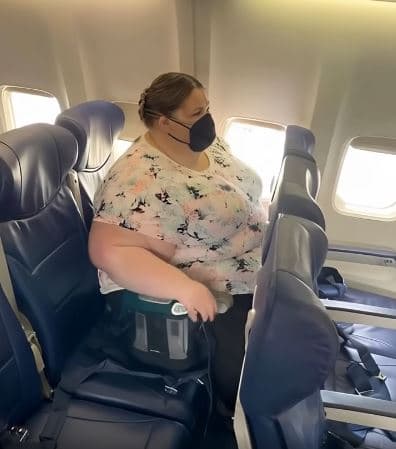Entitled Parents Told Me Not to Eat on the Plane — I Didn’t Listen
You’d think I’d be used to airports by now—delays, dry air, flimsy snacks. But nothing prepared me for the flight to Seattle that turned from routine to a lesson in self-advocacy at 30,000 feet.
I’m Elizabeth, a marketing consultant who travels constantly. I also live with type 1 diabetes, diagnosed at twelve. Most days, I manage it quietly—until I can’t.
On that flight, I skipped breakfast after a rushed client meeting. By the time I got to my seat, I was dizzy. I pulled out a protein bar—my emergency backup—only to be stopped by the mom next to me: “Can you not eat that? Our son has sensory issues.”
I hesitated. She insisted it was just a short flight. That I could wait.
But my blood sugar kept dropping. When I finally asked the flight attendant for food, the boy’s father leaned over: “No food or drinks for this row, thanks.”
This time, I didn’t stay silent.
“I have Type 1 Diabetes,” I said clearly. “If I don’t eat right now, I could pass out. So yes—I will be eating.”
Silence. Then support—from the flight attendant, from fellow passengers, from a woman a few rows back who mouthed, “Good for you.”
I wasn’t trying to start something. I was trying not to crash—literally.
Later, as the mom awkwardly apologized, I realized how often people with invisible conditions are made to feel like burdens. But we’re not.
My story reached further than I expected. A private Instagram post sparked messages from others with chronic illness, saying they’d felt too afraid to advocate for themselves. One even said she gave herself insulin at a wedding—for the first time without hiding.
That flight taught me something simple but life-changing: you don’t owe anyone an apology for taking care of your health.
Advocacy doesn’t have to be loud. Sometimes, it’s just opening a protein bar on a plane—even when someone tells you not to.
And once you learn to take up space unapologetically, you don’t shrink again.
That’s the kind of strength that flies with you forever.
 Fact Stream Daily
Fact Stream Daily



